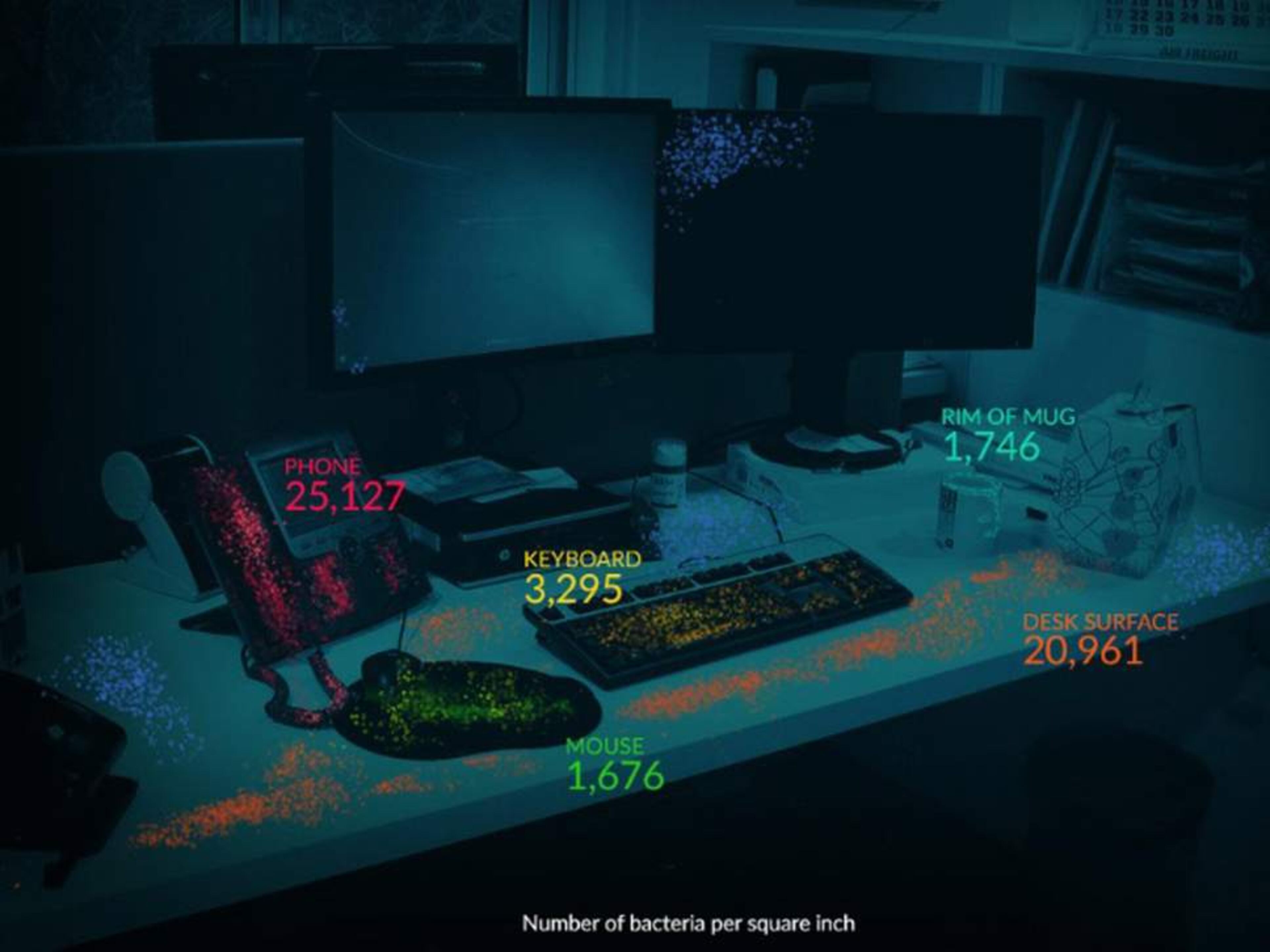6 reasons you should be washing your hands more
If you’re like most people, World Hand Hygiene Day snuck up on you May 5, and you completely forgot to celebrate.
But, really, shouldn’t clean hands be a priority every day?
Regular handwashing, particularly before and after certain activities, is one of the best ways to remove germs, avoid getting sick and prevent the spread of germs to others, according to the Centers for Disease Control and Prevention.
Although most people wash their hands before eating, and after using the toilet or blowing their nose, there are some reasons to lather up you might not have pondered.
Here are six clean and clear reasons to wash your hands:
1. Door handles
Bacteria can live on a door handle for weeks or, in the case of C. difficile, months. A 2014 study showed one germy doorknob can infect nearly half an office's staff and visitors within hours. Not only that, those infected spread the germs to other parts of the office.
» Flying with germs: 3 things you never want to touch at airports, on planes
2. Kitchen sponges
How bad could a sponge be? After all, it nearly always has soap on it, right? Wrong. A 2017 study by German researchers found that kitchen sponges often contain more germs than a typical toilet. Therefore, it's recommended you wash your hands after doing the dishes or using a sponge to clean your countertops.
3. Office desks
You have to sit there eight hours a day, so you probably keep your office desk clean. Probably. But clean doesn’t always mean germ-free.

Using the time-honored comparison to a toilet, a 2018 study found a typical office desk has about 400 times more germs than a toilet seat. To cut down on dangerous bacteria — such as Helicobacter pylori, Staphylococcus aureus and E-coli — a desk should be cleaned regularly with antibacterial wipes.
The average desktop harbors 20,961 germs per square inch, the Independent reported, in addition to 3,295 on the keyboard and 1,676 on a mouse and a staggering 25,127 on the phone.
» Study: Gym equipment is more bacteria-ridden than toilet seats, water faucets
4. Transportation
Riding metro Atlanta's MARTA or other public transit can be a great way to get to work or an event. But if you hold on to a pole or strap, you should wash your hands. A 2016 London study swabbed London's tube network (it's mass transit system) and found 121 bacteria and mold strains.
Don’t think you’re safe because you drive to work. Gas pumps are covered in germs, too.
5. Restaurants
Many people wash their hands if they go to the bathroom at a restaurant. But research shows you should always lather up before eating. A 2017 look at the germiest places in restaurants found that a menu can have as many as 185,000 germs per square centimeter. So the best time to wash up is after you've placed your order.
6. Cellphones
If it's not in your hand or pressed against your face, your cellphone is likely sitting on that germ-infested office desk. We take our phones everywhere these days, even to the bathroom. So it should surprise no one that a cellphone carries 10 times more bacteria than a toilet seat. The bacteria on your own phone might not make you sick, but if you touch someone else's — to look at a photo or video, or to add your contact information — you should wash your hands.
» Study says ball pits are crawling with infection-causing germs


